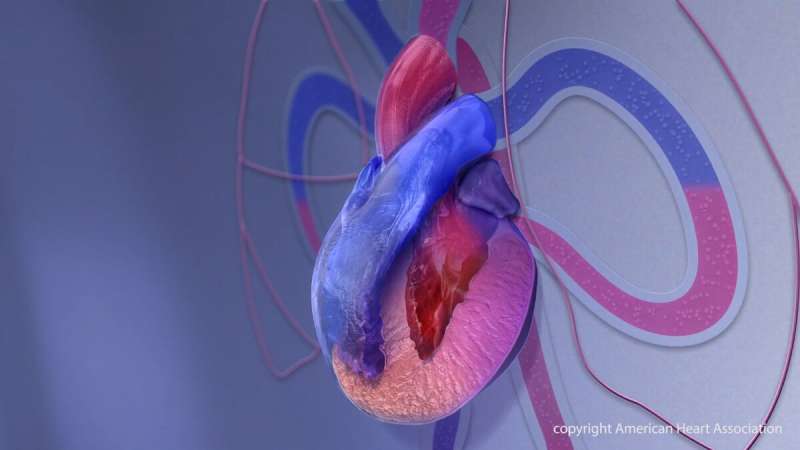

Many people with hypertrophic cardiomyopathy (HCM) experience unfavorable physical and psychological effects of their condition. Researchers at the American Heart Association found some patients with HCM have lengthy diagnosis journeys and, once diagnosed, face anxiety and necessary modifications to their everyday routines. Patients could benefit from expanded clinician recognition of HCM and amplified patient education and communication efforts.
Hypertrophic cardiomyopathy, or HCM, is when the walls of the heart thicken and stiffen, which can cause shortness of breath, chest pain, heart palpitations, fatigue, fainting and other atypical symptoms in people of any age. It affects an estimated 1 in 500 U.S. adults.
HCM often goes undiagnosed and can lead to heart failure and increase risks for atrial fibrillation, stroke and sudden cardiac death, according to the American Heart Association, the world’s leading nonprofit organization focused on heart and brain health for all.
“Receiving a diagnosis of HCM may result in medical recommendations that greatly impact an individual’s lifestyle and physical activities,” said Deena Zytnick, DrPH, senior program evaluation analyst at the American Heart Association and lead author of the study. “Gaining a better understanding of HCM patients’ experiences and perceptions, particularly related to HCM diagnosis and treatment, is integral for identifying patient barriers and implementing patient-centered care.”
For the study, published in Heart & Lung: The Journal of Cardiopulmonary and Acute Care, researchers conducted semi-structured interviews with 32 middle-aged and older adults with HCM who had been diagnosed for at least one year and had experienced symptoms within 30 days of their interviews.
Also, half of the participants had surgical septal myectomy, an open-heart surgery in which a surgeon reduces or removes part of the thickened septum between the ventricles which relieves the obstruction within the heart to improve blood flow. One patient had a heart transplant.
The researchers found:
- Participants with longer time to HCM diagnosis often had atypical symptoms or denied their symptoms and misdiagnoses. “It took one patient up to 26 years before the HCM was diagnosed,” Zytnick said. “One problem may be that HCM symptoms can present similarly to symptoms of other conditions, such as asthma.”
- Patients got HCM education and support from health care professionals and non-medical resources.
- Some people with HCM felt anxiety or were in denial or upset over their “life-changing” diagnosis. “People talked about altering where they live because they wanted to be near multidisciplinary HCM centers, where a health care team that included both non-specialist cardiologists and highly specialized HCM experts worked together,” Zytnick said. “For some people who may be younger and in their childbearing years, it even affected their decisions about whether they wanted to have biological children.
- Others experienced gratitude, acceptance and increased mindfulness about healthy habits when they were diagnosed.
- Over time, they said they were less fearful as they used HCM patient resources and treatment options.
Source: Read Full Article